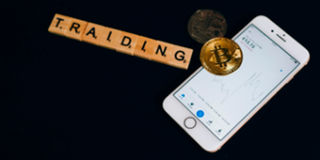Implementing robust security features in forex trading apps for Kenyan traders
Sponsored by Bazoom Group

The growth in forex trading within Kenya has made the financial sector develop rapidly over the years, mainly impelled by increased smartphone penetration, improved internet connectivity and an increase in Kenyans' financial literacy.
Forex trading in Kenya has grown to a reported 100,000 active traders currently, from a negligible number a decade ago. As more users are joining this market, protection for user data and securing financial transactions remains highly in demand.
The latest cyber threats are among the high-priority risks, especially with phishing attacks and malware, as a part of ongoing challenges to online trading platforms. For this reason, it is very crucial to implement strong securities in the forex trading applications to protect the trader's investment in maintaining faith in the ecosystem of digital trading.
Key security features every forex trading app should have
Any forex trading app is said to be secure since it avails all the features related to data protection, transaction safety and user authentication. The following emphasises how the security level centred around the best forex trading apps in Kenya, such as those regulated by the Capital Market Authority.
Data encryption: The application should offer the state of the art in data encryption, if necessary, to protect user information from cybercriminals. Encryption is here to ensure that the data transferred between the user's device and the server of an app is not readable by any unauthorised parties.
Secure Socket Layer (SSL) certificates: The implementation of SSL certificates on trading platforms helps encrypt all web traffic, making it difficult for hackers to intercept sensitive information.
Biometric authentication: This is done by fingerprint scanning or face recognition features for tighter security, where trading accounts shall only be revealed to the person authorised.
Account monitoring and alerts: A great forex trading mobile application should be able to monitor accounts in real time and can send alerts in the event of suspicious activities, such as multiple failed login attempts or unusual transactions. Some platforms integrate AI-driven tools that analyse user behaviour, to detect any potential security threats.
With the frequency at which traders are performing transactions, such features have become a necessity within mobile trading applications. This level of security can engender a feeling of confidence among its clientele, knowing full well that their investments and personal information are secure.
Multi-Factor Authentication (MFA) and its importance
Perhaps the best protection for online trading accounts nowadays is Multi-Factor Authentication, also known as MFA, a process involving verification of users to grant access through multiple means. Usually, MFA integrates something the user knows – passwords – against something they have – such as a smartphone or email verification – along with something they are – biometric data.
With MFA, Kenyan traders face a significantly lower threat of unauthorised access. Considering that the threats of identity theft are increasing, MFA integration in trading apps is a needed development to forestall potential breaches. For example, one of the 2023 reports on cyber threats in Africa showed that the continent faced a 22 percent increase in attempts of identity theft, and thus there is a great need for improved security at all times across digital platforms.
The future of security in forex trading apps for Kenyan traders
Forex trading apps are required to gradually upgrade their security features with an ever-evolving cyber threat. In the future, more and more dependencies will fall upon artificial intelligence and machine learning to predict and counter cyber threats. AI solutions could bring out unusual patterns in user behaviour and may enable the platforms to take immediate action on security breaches.
Machine learning algorithms help identify phishing amongst other social engineering techniques that attackers use. Regulatory compliance will also be a key determinant in the security setup.
CMA has already set basic rules for forex brokers in Kenya, greatly stressing the protection of data and securing transaction protocols. With increased regulations, brokers and trading application developers will be compelled to shift toward advanced technologies in security. Further, the integration of blockchain technology is workable for forex trading platforms.
Blockchain's decentralised nature enables it to increase the aspect of transparency and, at the same time, is far more secure than transactions; thus, it may become an integral part of forex trading in the near future. As the forex trading market of Kenya grows, the security measures applied in trading applications will always be highly relevant.
The forecasted daily trading volume of $200 million drove developers to develop robust, future-proof solutions by 2025. Such increased market activity will consequently lead to increasingly complex cyber threats, so trading platforms must keep ahead through the use of state-of-the-art security technologies, including also AI-driven threat detection, multi-factor authentication and blockchain.
Furthermore, security features will not be a competitive advantage but a license to operate as the rules tighten up and more local traders enter the market.
Best-in-class security practices will insulate traders from possible losses either through fraud or by bolstering confidence in the digital space for trading.
Therefore, the future direction that Kenyan forex trading platforms need to take on board is one of constant innovation in security strategies, adherence to international standards of operation and the sensitisation of traders on the importance of secure trading practices. This proactive approach will make certain that a proper and functioning trading environment exists to set the long-term development of Kenya's forex market and promote the financial inclusion of many.


